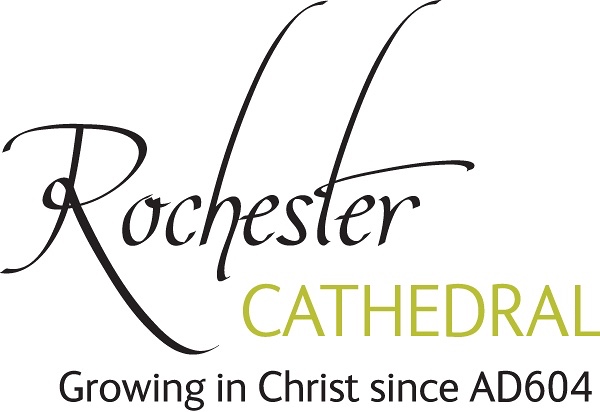11 April 2021 - Sermon in memoriam of His Royal Highness the Duke of Edinburgh
/Half way up the Mount of Olives, in Jerusalem, just up the hill from the garden of Gethsemane, is the Church of St Mary Magdalene. It is a beautiful, onion-domed building, and is very much part of the landscape of the Holy City, along with the Dome of the Rock, Al Aqsa mosque and the walled city itself. It is set in its own stepped gardens and one has to climb to get to it, to enter its sacred space. On the wall is a picture of Mary Magdalene giving an egg to Pontius Pilate, for orthodox legend has it that after the resurrection of Jesus Mary Magdalene converted the Roman Prefect of Judea who had sentenced Jesus to death, and that she illustrated the new life brought about by resurrection hope, by using an egg as a visual aid of new life emerging from a sealed chamber. Consequently, Pontius Pilate is even known in some traditions as St Pontius Pilate.
Built in 1886 the church became part of the Covent of the Order of St Mary Magdalene, and they still welcome pilgrims today. Two modern martyrs are buried there: Grand Duchess Elizabeth Feodorovna of Russia and her fellow nun Varvara Yakovleva. Both were taken prisoner by the Bolsheviks during the Russian revolution and murdered in 1918. Grand Duchess Elizabeth, whose statue is on the West Front of Westminster Abbey, was the great Aunt of Prince Philip. His mother, Princess Alice of Battenberg, who died in 1969, is buried in the church, her remains having been interred in the crypt in 1988. She had asked to be buried with her Aunt Ella, whose martyrdom no doubt, she remembered. And now her son, The Prince Philip, Duke of Edinburgh, husband of her Majesty, father of four, grandfather of eight and great grandfather, and exemplary public servant of the Commonwealth, has died after ninety-nine years, the majority of which he spent under the public gaze.
Few of us knew him personally, although I daresay hundreds of thousands of people met him, however briefly. Many characterful stories are emerging at this time. His passing is inevitably a public one, and by that I mean it touches us all. It touches every widow in this land, every woman who has lost her husband is reminded of her own heart-stopping day. We all extend sympathy to her Majesty the Queen, not simply because she is the Queen, but because she is a woman – a noble and devout woman - who has lost her soulmate. So many have been where she now is, and this week’s news will cause heartstrings to resonate and reverberate around the world. Public grief comes from within, because it releases private grief anew.
The nation is now given permission to weep, because actually there is so much more to weep for than the passing of his Royal Highness. A lot has been bottled up this past year. We are sorry, not just about that, not just for the Queen, but for ourselves. Much has been lost this past year, and we also sense the passing of an era. The past is ebbing away, the present is challenging and the future is uncertain. For some it is too much to bear and perhaps we all need a little cry from time to time.
But let us be comforted, comforted by a return to Mary Magdalene, and Thomas, in Jerusalem and that Upper room, not so far from the Mount of Olives. We know him as ‘doubting Thomas’, which is a bit of fake news really. We should call him ‘Believing Thomas’. 2000 years of history have emphasised the fake news that Thomas did not believe in the resurrection. I mean, he didn’t, at first, but then he did. What’s wrong with that? Who hasn’t wanted to examine the evidence before making a committed judgement? Who hasn’t been doubtful about something improbable before deciding?
Thomas, Didymus, which means ‘twin’ - Thomas is our man in Jerusalem.
He is our twin brother who does what we would have done. He does not so much, doubt, as verify. But whatever we call his attitude and approach, it makes him a man of our age too. And when he has his caution satisfied, when he sees the evidence, he has the presence of mind and courage to speak his mind, believe and worship. These are attributes which some have attributed to Prince Philip.
With him, with Thomas, and the disciples, with Mary Magdalene, and with her Majesty the Queen and the Mountbatten and Windsor families, we have an Easter faith to celebrate. Exactly a year ago, on April 11th 2020, when we were all behind closed doors in the midst of Easter Lockdown, Her Majesty gave an Easter message for the first time ever, in which she said this:
“we need Easter as much as ever. The discovery of the risen Christ on the first Easter Day gave his followers new hope and fresh purpose, and we can all take heart from this. We know that Coronavirus will not overcome us. As dark as death can be — particularly for those suffering with grief —light and life are greater. May the living flame of the Easter hope be a steady guide as we face the future.”
A year on, I am confident that these words still give Her Majesty – and all of us - hope, blended as they are with faith and love - these three things. The empty tomb gives us hope to pray for the time when we can fling wide our doors and share our faith again with those whom we can see and touch. Meantime we remember what happened on that Easter Day: Jesus came behind lockdown doors and offered the disciples peace and hope. He showed them the marks of passion which proved his resurrection, but like Mary in the Easter garden they did not touch him. Yet when he returned he invited Thomas to touch and hold him. The time was right.
It is important to be able to touch and hold others - especially in the midst of grief, public or private - bodily presence is as important as emotional and spiritual support. In the faith, hope and love the risen Christ gives us, we have all three: spiritual faith, emotional hope and loving touch. These three abide, and they abide, as the risen Christ himself does, in us, with us and through us. The ability to touch others again will be restored. Meantime we can infect others with faith, hope and love at huge distances, through walls and behind closed doors. And there is an exit strategy: resurrection life. For we are Easter People, and ‘Alleluia’ is our song.
The Rev’d Canon Dr Gordon Giles, Rochester Cathedral 11/4/21




